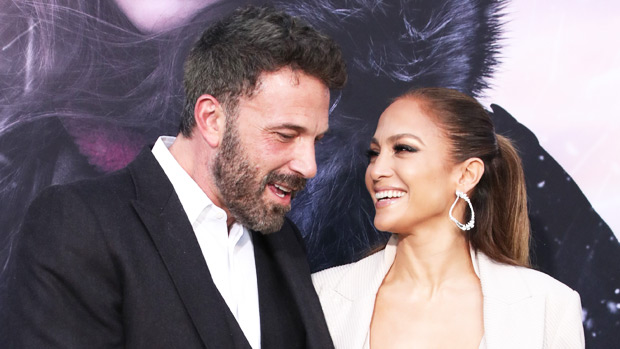It almost feels right that an Eli Roth movie based on Gearbox Software's Borderlands, a garish video game grind-a-thon that indulges nimrod irreverence and cartoon havoc, would disrupt the good vibes that video game adaptations have been bestowed of late. Roth's film, cobbled together from pixels, sheet metal, goop, eyeliner, and dental floss, gives the sensation of watching Hot Topic Marvel, and feels regressive compared to critically lauded hits like Prime Video's Fallout and HBO's The Last Of Us—maybe even rebellious. If it was any good, I'd be convinced that was the case. As it exists now—a deeply compromised final cut that Lionsgate has chucked into theaters like a live grenade—Roth's adaptation haphazardly crashes into the same problem that has blighted the crummier game movies of yore: remove the catharsis of controlling the fantastic stuff our digital avatars can get up to, and all that's left are the cutscenes.Even as a $100M feature-length cutscene, Borderlands can't hack it. The games' eclectic comic-strip visuals are transposed to live-action convincingly enough, almost like Gearbox sent Roth a file of assets to be 3D printed to life-size (which appears to be the case). Requisite fidelity has been paid to the franchise's alien worlds, like the rocky spikes of Pandora (not that one) which enjoy a widescreen glow-up, even if they're kept in the green-screen distance. This adaptation is so devoted to nailing the games' frantic loot-and-shoot cadence—action sequences begin and end and begin again before you can even start to care about what's happening—it feels made exclusively (defensively?) for the fanbase. That makes a kind of sense; casual moviegoers will doubtlessly walk out of Borderlands (provided they first go in) feeling as though they were looted of a brain cell or five. Borderlands limps out of the gate with an opening sequence that introduces Roland (Kevin Hart), a resolute military rogue who facilitates the escape of Tiny Tina (Ariana Greenblatt, Barbie snark on full blast) from the clutches of Atlas (Edgar Ramírez), her corporate overlord father. Roth shows his limitations as an action director (Deadpool's Tim Miller stepped in for reshoots, though good luck deciding who shot what) as Roland, Tina, and Krieg (a monosyllabic psycho played by German boxer Florian Munteanu) blast their way through a hallway populated by Atlas' forces. Any sense of propulsion, or visual cause-and-effect one might expect from a hallway gunfight, is tossed out the window. Example: Hart fires his ray gun at something offscreen; next, someone falls to the floor. Did the blast connect? Who could say?Things momentarily perk up once the movie shifts to the planet Promethea, where we meet Lilith, a fashion-compromised bounty hunter played with a searing aura of "over it" by Cate Blanchett. Here, Lilith drags her latest quarry through the rain to a neon-soaked dive bar—Roth's giving shades of Blade Runner, maybe—where Atlas' cronies offer her a huge sum of money to track down Roland and Tina. This new contract requires Lilith to return to Pandora, a junkpile of a planet (more often referred to as a "shithole") that also happens to house some of the most sought-after alien vaults in the cosmos, where her tragic past inevitably catches up with her in a series of mishaps that pull into her orbit a squirrely scientist (Jamie Lee Curtis), a nattering robot named Claptrap (Jack Black) and a burlesque-frocked madam (Gina Gershon). One or two of these characters even contribute meaningfully to the story. Lilith's backstory serves as the emotional throughline of Borderlands (written by Roth and a mysterious stranger named "Joe Crombie," who may or may not be Craig Mazin in disguise), and her testy surrogate family situation with this motley band of characters feels like it was consciously modeled after James Gunn's Guardians Of The Galaxy movies. Taken as a whole, it more closely resembles David Ayer's catastrophic Suicide Squad: blighted by reshoots and slapdash edits (most of its finale feels like a rush job, despite the movie taking three years to release), powered only by the mood its few jukebox needledrops can provide. And at least Gunn had a diegetic excuse for why Earthling Top 40 gets play on alien worlds; here, Motörhead's "The Ace Of Spades" gets tossed in simply because the movie desperately needs the energy.Not for nothing, Roth does bring a scuzziness appropriate to the proceedings, even if it is a sanitized PG-13 version of his gnarlier impulses. There are moments where Krieg’s buzzsaw sledgehammer connects with his victims so ferociously that you get the impression that someone toggled off the movie's gore. Textures in the production design are reminiscent of the messier aspects of Roth's splatter movies; one sequence deep underground features a pack of ultra-psycho raiders who come off like gutter-punk Uruk-hai, and their hideout has surfaces slicked with sweat, oil, and toxic Troma sludge. (Cabin Fever's open sores and Thanksgiving's oven-roasted flesh sprung to mind during this scene.) It's a shame Borderlands was saddled with its rating, given the M-for-Mature branding of the games and the recent success of other R-rated genre fare. Roth's zeal for mayhem could have otherwise been a smart fit for the franchise.Instead, the director is in work-for-hire mode, employing the squishy, family-centric energy seen in his 2018 adaptation of John Bellairs' The House With A Clock In Its Walls (also starring Blanchett and Black). As that movie spliced sentimentality with poo jokes, so too does Borderlands contrast Lilith and Tina’s "you're special" epiphanies with a shot of Claptrap farting out hundreds of spent bullet casings. The tone of the movie is all over the map (unsurprising, given how many people had a hand in writing and shooting it), which leaves much of the cast painting expressions on their faces that are a cross between stoic frustration and subtle confusion. Only Greenblatt seems to jibe with Borderlands' chaos, bopping from one scene to the next chucking exploding bunnies and generally having a grand time doing it. (I'm struggling to find the sense in casting Kevin Hart, who has made a career out of playing loud, gregarious characters, as the movie's stoic action hero.)Tiny Tina doesn't get to have all the fun, however. While the instances of pure inspiration in Borderlands are few, there is a visceral charge in witnessing Blanchett, Oscar-winner and actor of singular, transcendent talent, flipping over oil barrels while bringing down hellfire on a pack of rampaging psychos. At one point, Blanchett hoists a flamethrower and lets it rip, and she looks right at home with it. It's a memorable if fleeting instance where Roth's accidental visual carnage seems deliberate, and suddenly Gearbox's famous run-and-gunner becomes happily wedded to its live-action incarnation. The moment doesn't last, but Blanchett, in a crimson flip of a wig and seething through her Hela-styled eyeliner, makes a feast of it. Any movie with this Manic Pixie Ellen Ripley in it can't be all bad, though Borderlands sure as shootin' aims for it.Director: Eli RothWriter: Eli Roth, Joe CrombieStarring: Cate Blanchett, Kevin Hart, Jack Black, Edgar Ramírez, Ariana Greenblatt, Florian Munteanu, Gina Gershon, Jamie Lee CurtisRelease Date: August 9, 2024



















